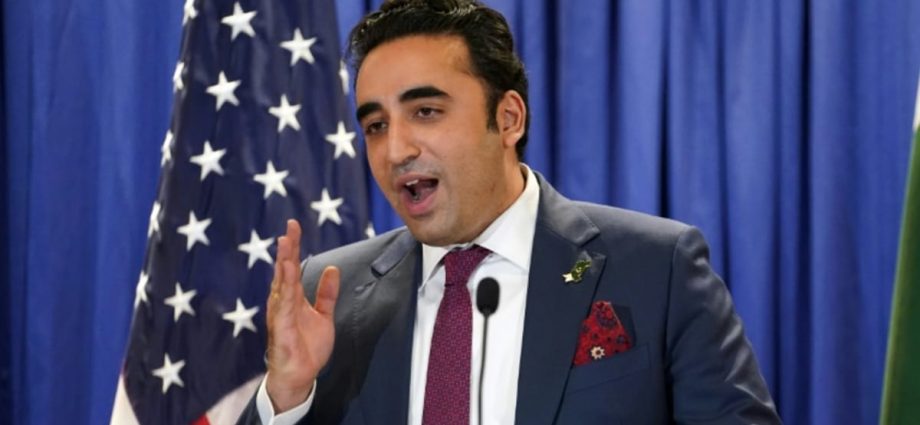
“GREAT POWER RIVALRIES”
Bhutto Zardari, the Oxford-educated 34-year-old scion of a preeminent political dynasty, took office five months ago amid political turbulence in Pakistan after a no-confidence vote in former prime minister Imran Khan.
The strife comes as Pakistan is ravaged by floods that have submerged one-third of the country, displacing millions.
At a meeting on Monday, US Secretary of State Antony Blinken promised long-term support. In a message less welcome by Pakistan, the top US diplomat also called on Islamabad to ask China to restructure debt accumulated as Beijing builds billions of dollars of infrastructure in a quest for Indian Ocean port access.
Asked about Blinken’s remarks, Bhutto Zardari said he has had “very productive conversations” with China and said he hoped that assistance after the historic floods “does not fall prey to great power rivalries and geostrategic issues”.
With Beijing seen by many Pakistanis as an uncritical ally, successive governments in Islamabad have rebuffed US calls to weigh in on the mass incarceration of Uyghurs and other mostly Muslim people, a campaign Washington calls genocide.
“I’m sure that the United States would like for us to comment more on China’s internal affairs,” Bhutto Zardari said.
“But maybe if we start by addressing disputes that are recognised by bodies such as the United Nations as disputes of an international nature, that would be more productive.”
He was referring to Kashmir, the Himalayan territory divided between India and Pakistan and the trigger for two of their three full-fledged wars.
Indian Prime Minister Narendra Modi, a Hindu nationalist, in 2019 stripped Muslim-majority Jammu and Kashmir of its historic autonomy and opened the way for other Indian citizens to live there.
Bhutto Zardari recalled that when his Pakistan People’s Party was in power in 2010, it moved to open trade with India, then led by prime minister Manmohan Singh.
“We were willing to take the political risk, stick our necks on the line, and touch the third rail of Pakistani politics – but because we knew that there was a rational, reasonable player on the other end who would perhaps be willing to reciprocate,” Bhutto Zardari said.
“Unfortunately, that space does not exist today. It’s a very different India.”

